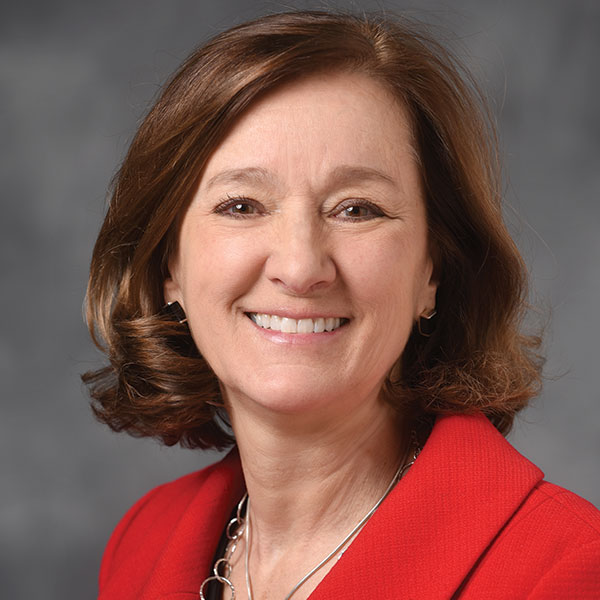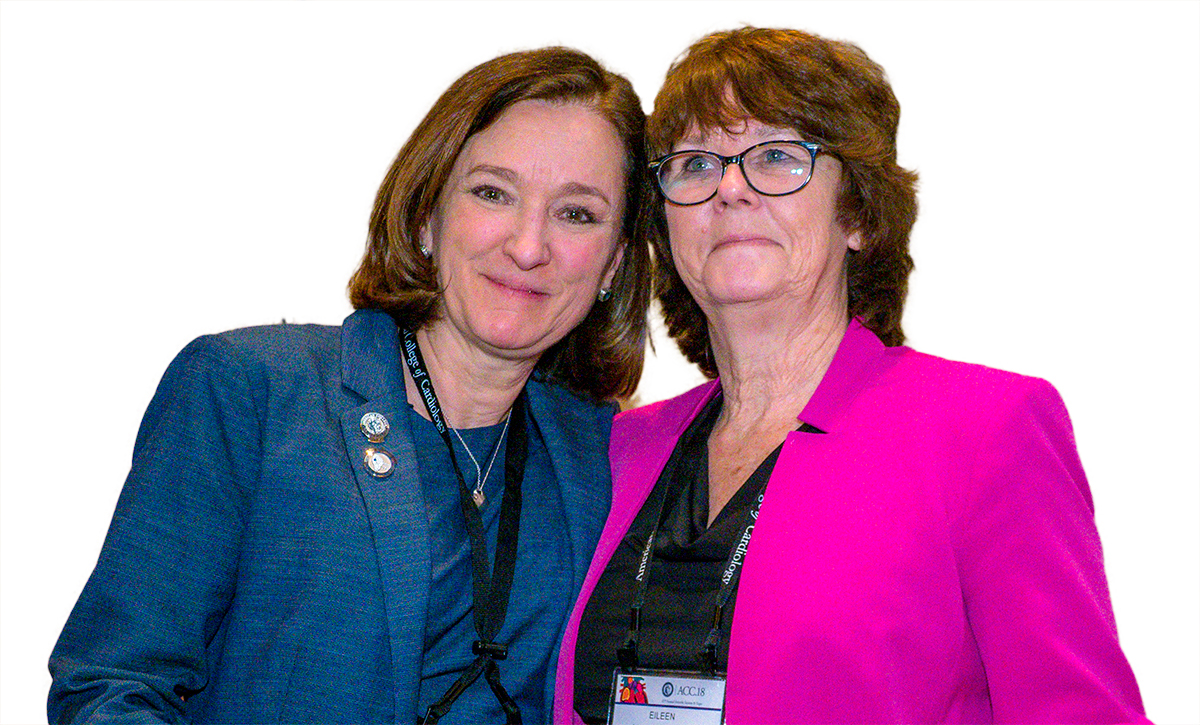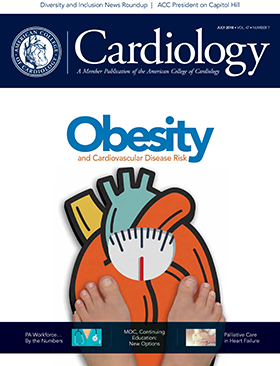From the Members Section | 2018 Distinguished Associate Janet F. Wyman, DNP, RNCS, AACC

Janet (Gigi) F. Wyman, DNP, RNCS, AACC, program director for the Center for Structural Heart Disease at Henry Ford Hospital in Detroit, MI, is a prime example of an ACC Cardiovascular (CV) Team member who has contributed a great deal of time, passion and wisdom to the College. As a member of the ACC since 2003, when membership first opened for nurses, advanced practice nurses and physician assistants, Wyman has taken on leadership roles, provided expertise on advocacy issues and been involved with education at both the chapter and national level. Her contributions to the ACC have been recognized with the 2018 Distinguished Associate Award, presented at ACC.18.
Wyman talked with Cardiology about the importance of the cardiovascular care team, opportunities that stem from leadership roles and how the ACC serves as the professional home for all health care team members striving to advance cardiovascular health.
How has the role of the heath care team changed since you began your career?
As the care that we offer patients has become more complex and personalized over the years, it has required a team of providers with a higher level and more diverse education. Patients have different needs at different times in their disease process, requiring the skills of various professionals. Each team member is essential to the patient at that moment.
Is there a story that illustrates the importance of the cardiovascular team to the patient?
Over the last eight years, it has been the highlight of my career to work with a team of professionals and staff at Henry Ford to build a structural heart disease program. The story of transcatheter therapy has occurred across the country and each program will attest to the necessity of a team of professionals who bring symptomatic patients through a complicated evaluation process to a procedure that transforms their lives. Whether it’s the 89-year-old grandmother who is not a surgical candidate due to a history of radiation therapy for breast cancer and two previous bioprosthetic valve surgeries, or a 36-year-old soccer coach who will lose his livelihood if he has a mechanical valve placed, each case requires thoughtful navigation and management.
What has been most rewarding in your work at the chapter and national level with the ACC?
Each opportunity and activity has been rewarding in different ways. As the first liaison for the state of Michigan, it was rewarding to help build our state “team” awareness. As the first chair of the CV Team Section Advocacy Work Group, we held the first Legislative Conference “pre-session” to help CV Team Section members gain an understanding of health policy and how to find their voice. This session continues.
"...be patient with yourself. Your career is far longer than you ever imagined and every challenge you take on – even if you are not successful – will provide a valuable resource at some time in your future."
As chair of the CV Team Leadership Council and Section, I had the pleasure of facilitating future leaders of the College, including Craig J. Beavers, PharmD, AACC; Linda L. Hart, DNP, RN, ACNP-BC, AACC; Heather M. Ross, PhD, DNP, AACC; and Amy E. Simone PA-C, AACC, to name a few. My goal was to facilitate growth of future leaders and I look forward to their contributions.
Being a mentor is clearly important to you. Who are your mentors?
W. Douglas Weaver, MD, MACC, and Michael J. Wolk, MD, MACC, both past presidents of the College, had a way of saying “you can do this.” They helped motivate me to contribute in unexpected, unanticipated ways and have a way of helping you realize you are capable of more. Eileen M. Handberg, PHD, ARNP, FACC, current chair of the CV Team Section and past member of the Board of Trustees shows impressive vision; her skill at negotiating resources and bringing together a team of cardiovascular team providers to achieve better patient care teaches me something new every time I work with her. I currently work for a woman, Ruth Fisher, MBA, who has mentored me to become a better manager of our structural heart team and is the epitome of a positive coach, helping the “team” work more effectively together.
What’s your key advice to other cardiovascular care team members just starting their careers?
I consider it a great success when a staff member or colleague asks for help to develop an idea of their own or pursue another higher degree. My advice to our team recently was to “step up and get involved.” When you’re asked to participate or volunteer, say “yes!” Being asked means that your potential was recognized. It doesn’t mean you’re expected to know all the answers. Finally, be patient with yourself. Your career is far longer than you ever imagined and every challenge you take on — even if you are not successful — will provide a valuable resource at some time in your future.
What’s your view of the future of the cardiovascular care team?
A team is essential in cardiology because the knowledge and skills of multiple different health care professionals are needed to address the cardiovascular disease of the future. The workforce of the past is simply not able to meet the complexity and personalized care needed today. No single profession can address all needs for all patients. A team of cardiovascular care professionals, including medicine, surgery, nursing, pharmacy and rehabilitation will be needed in the future to meet the needs of personalized medicine. Only then will we be able to fully and appropriately address the complex needs of our patients.

Janet (Gigi) F. Wyman, DNP, RNCS, AACC (left) with Eileen M. Handberg, PHD, ARNP, FACC, at ACC.18 in Orlando.
Clinical Topics: Cardiovascular Care Team
Keywords: ACC Publications, Cardiology Magazine, Mentors, Trustees, Leadership, Negotiating, Pharmacies, Pharmacy, Pharmaceutical Services, Patient Care, Health Policy, Patient Care Team, Physician Assistants, Volunteers, Cardiovascular Diseases, Awards and Prizes, Heart Diseases, Breast Neoplasms
< Back to Listings


